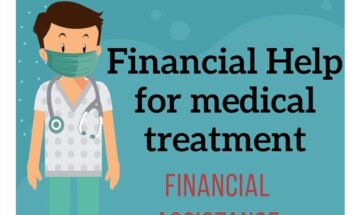
A “beacon of hope and support” is returning to Franklin County. The Safe Place Network is preparing to re-launch in Washington, where it will resume its program that provides safe havens and supportive services to at-risk youth, victims of domestic violence and homeless people up to the age of 24.
Mark Moebius, President of Epic Empowerment, the umbrella organization for the local Safe Place initiative, said after the COVID pandemic shut down the group’s previous effort, it will re-launch in Washington. “We’re focused on Washington, and the reason for that is we’ve had about ten years of, really, serving the whole county, and that will run you pretty thin,” he said. “We’re focusing on Washington as a model, and then once we complete everything we need here, then we’re going to go on to other cities in the county.
“Safe Place is a nationwide network in which runaways and at-risk youth can come in off the street, receive food and drink, and wait for a volunteer from a Safe Place agency to connect them with professional help or a place to stay until their situation is resolved,” according to QuikTrip, a national sponsor of the program.
“We’re the representative for that in Franklin County,” said Moebius. “We’ll do an official launch here shortly. We’ve really been gathering stakeholders together. There’s a lot of needs out there. We realize getting our stakeholders together, you know, the city, the fire department and other people involved is really important to the success of the program.”
The group just launched an 800 number, 866-625-SAFE, which is operational 24 hours a day.
To get help, all someone in need has to do is call the hotline or go into a participating business and ask for help. “So you can walk into a Safe Place and you can get connected to resources, that’s really their role, to give them a safe place to go,” said Moebius. “So, it depends on what they need. Right away, we get them an assessment from BHR, Behavioral Health Response, because we kind of need to know what kind of trouble they’re in.” BHR is a mental health organization that serves Franklin County.
Businesses and other organizations such as libraries and YMCAs that choose to be Safe Places will place a sign in a conspicuous spot, such as on the front door, letting people in need know they are welcome. The sign, reminiscent of a black and yellow road sign, says “Safe Place,” with a graphic depiction of a house forming the letter “A” in the word Place.
“As far as the location goes, it’s very easy for them to participate, because they just need a safe spot for youth to come and have a seat, get them a bottle of water, and follow the procedures.”
Moebius said sometimes a person is just having a really bad day, and may not need the full services Safe Place can offer. And, he said some problems are outside the scope of their mission. “We can’t do a lot with severe mental health issues or drug addiction problems. So, we’re kind of staying in the vein of ‘good kids, bad situations’” he said.
Moebius said when a person is in genuine need, they try to get them a place to stay, at least temporarily, to get them out of immediate danger. Sometimes that can mean an established shelter such as Life’s River or Grace’s Place. “Before COVID, we had Taylor’s House in Union, which was that 72-hour respite care. Unfortunately, we lost that, so we’re looking to our host families to provide that 72-hour assessment time to just let things cool down. Our goal is to return them to a strong family structure. Sometimes that works, sometimes it doesn’t.”
The host family provides a safe physical environment. “And really, for us, we feel like that’s the best scenario, because it’s people helping people. We get a whole family that can help a young person, versus going to a shelter.” Moebius said they are currently looking for families to volunteer to be host families for Safe Place Network. “We’ve got six here in Washington, and I’d love that number to be 25, that is our goal.”
They also need businesses that are willing to serve as Safe Places. Moebius says almost any business can do it. “Any type of brick and mortar building. Places that are open to the public. Places like gas stations. QuikTrip is our national sponsor. Anyplace like that, but we’ve got dentist’s offices, YMCAs, libraries, because they’re always hanging out there.”
Lauren Sherry, QuikTrip’s community relations manager and a board member for Safe Place Network, said the partnership has been rewarding for the corporation as well as the local communities. “This partnership has allowed us to give back to our communities in a very tangible way,” she said. “In addition to the help this brings to the youth and families in crisis, this program allows our employees to give back to those in the communities in which we work and live.”
White Castle is another well-known supporter of Safe Place. Vice President Mike Guinan said, “We’re honored to partner with an organization that truly recognizes the dignity of each person. The work that Safe Place is doing nourishes the souls in neighborhoods everywhere, and we’re thankful for our friendship.”
Personally rewarding
That sense of giving back to the community is what motivates “lifetime volunteer” Jane Mense of Union. She said she learned the value of helping people as a child. “My mother was in charge of St. Vincent de Paul in Union, and my aunt was in the Washington parishes, so I grew up with our dining room table of St. Vincent de Paul, where they had notecards and paper pads when people called in for help.”
Gone are the days of note cards and paper pads. Today, the hotline is answered by an AI (artificial intelligence) attendant, which sounds very real and is very good at interacting with callers and responding in real time to spontaneous questions. They can input information into the system, and the AI attendant can use that to help callers. “All I have to do is tell it to go to this website, pull all that information in, and now for that attendant, she knows how to respond to you,” said Moebius. The AI attendant can then ask callers questions, like their location and specific needs, and can direct them to the appropriate places.
Both Mense and Moebius have technology backgrounds. The software company Salesforce donated their not-for-profit cloud software to them. “That was a huge, huge, blessing for us, because most organizations at our level can’t afford that kind of assistance, right?” said Moebius. The software allows greater communication between Safe Place and any group that wants to help. It also helps them avoid abuse of the system. “That way we’re all sharing information,” said Moebius. What I would run into is church after church after church, I would go visit five or six of them, and oddly enough, the same couple or the same young person was hitting them up with ‘I need my gas bill paid,’ or ‘I need my electric bill paid,’ and they knew sometimes that there were people out there doing that, but this is a little more of a solution about getting people the help they need, and not getting scammed.”
But, state-of-the-art technology is only part of the effort. “It takes personal involvement to solve this problem. We can’t do it all with technology,” said Moebius.
Restarting
Moebius and Mense are not starting from scratch. They had already established Safe Places in Franklin County in 2017 which proved a success. Moebius said they helped 960 people out of tight spots, until the pandemic hit. “It ramped up, and with COVID, it just dropped off completely.”
“I was amazed,” said Mense. “We had 300 (businesses) at one time, pre-COVID. We lost about 50 of them because a lot of those businesses went out of business.” Moebius agrees. “It really attacked everything, because our primary places were schools, libraries, the YMCA, and they all shut down, so we lost connection to a lot of people during that, and they lost connection to us.”
Moebius said they plan a public re-launch soon. “Now we’re more focused on the administration part of it, utilizing some technology that wasn’t used before. We just launched the 800 number, so that is now the 24-7 hotline.”
He said the need is still there, even if it’s not conspicuous. “Oh yeah, I call them invisible children, because our kids are not with hoodies and a dog and a cardboard sign standing by the side of the road. In fact, they dress nice.”
Moebius and Mense both say they’re optimistic about the future of Safe Place. “There are great resources and great people, and they want to help,” said Moebius. “When things get fractured, kids get very discouraged. Jane and I ended up in a church over here. It was our first kid we were going to help, ever. After we called the third number that was disconnected, the kid just had a meltdown. And he said, ‘You know what, there’s nobody out there who’s going to help me.’ And boy, that’ll get you.”
Tammy Hopper, the chief strategic initiatives officer for Safe Place, said “They need to know there are people who care, and people who are invested in their safety, and people who are willing to help them in times of need.”
Moebius said that’s why he’s doing what he’s doing. “What we set out to do is deliver that hope to them as quickly as possible, take a desperate situation, or a triage situation, and get them into a safe place, where they can start to look at life a little bit differently than whatever has happened up until that point.”
Originally Posted At:
https://www.emissourian.com/features_people/safe-place-network-ready-to-relaunch/article_19d159c2-6a2f-11ef-a485-83557743ce4c.html


